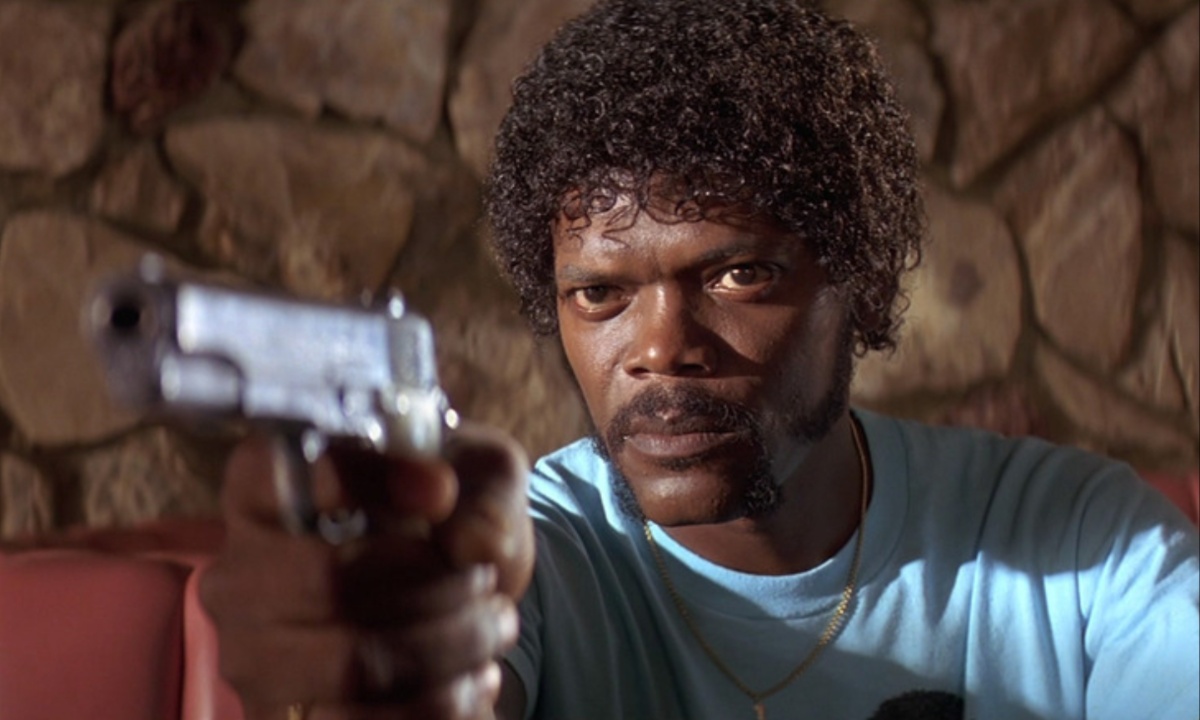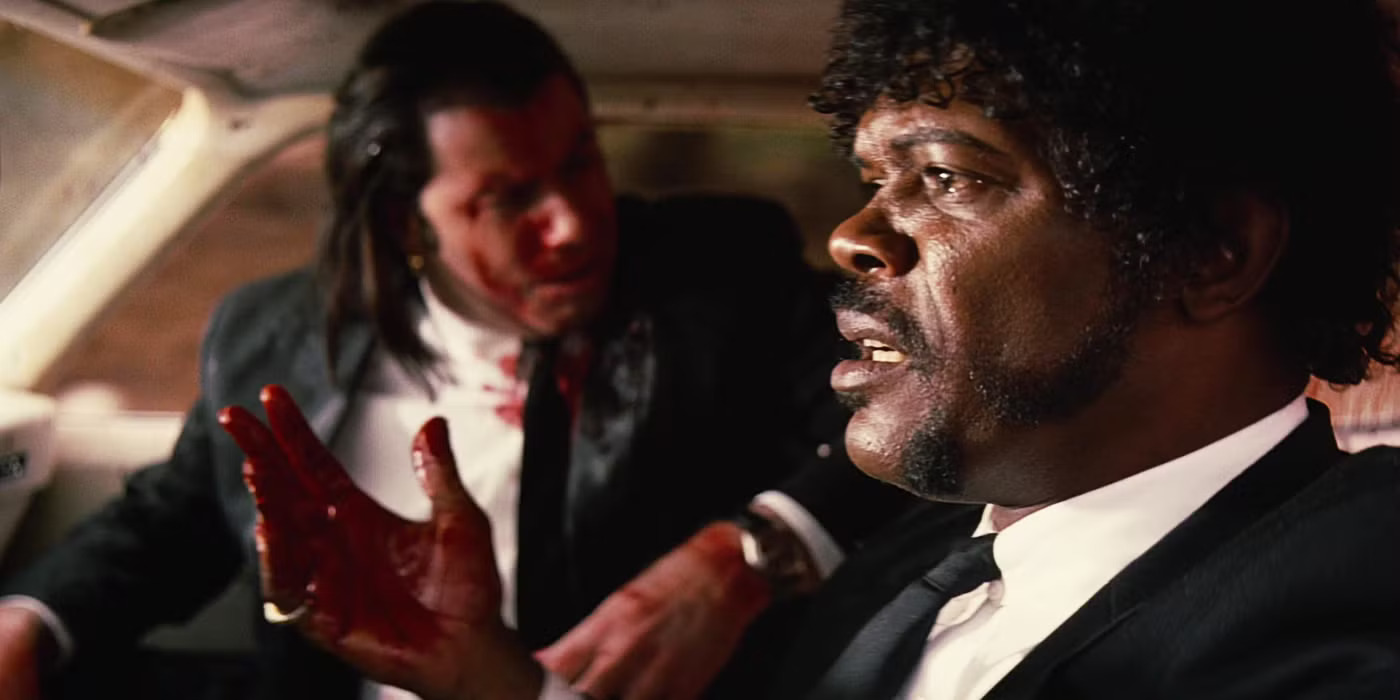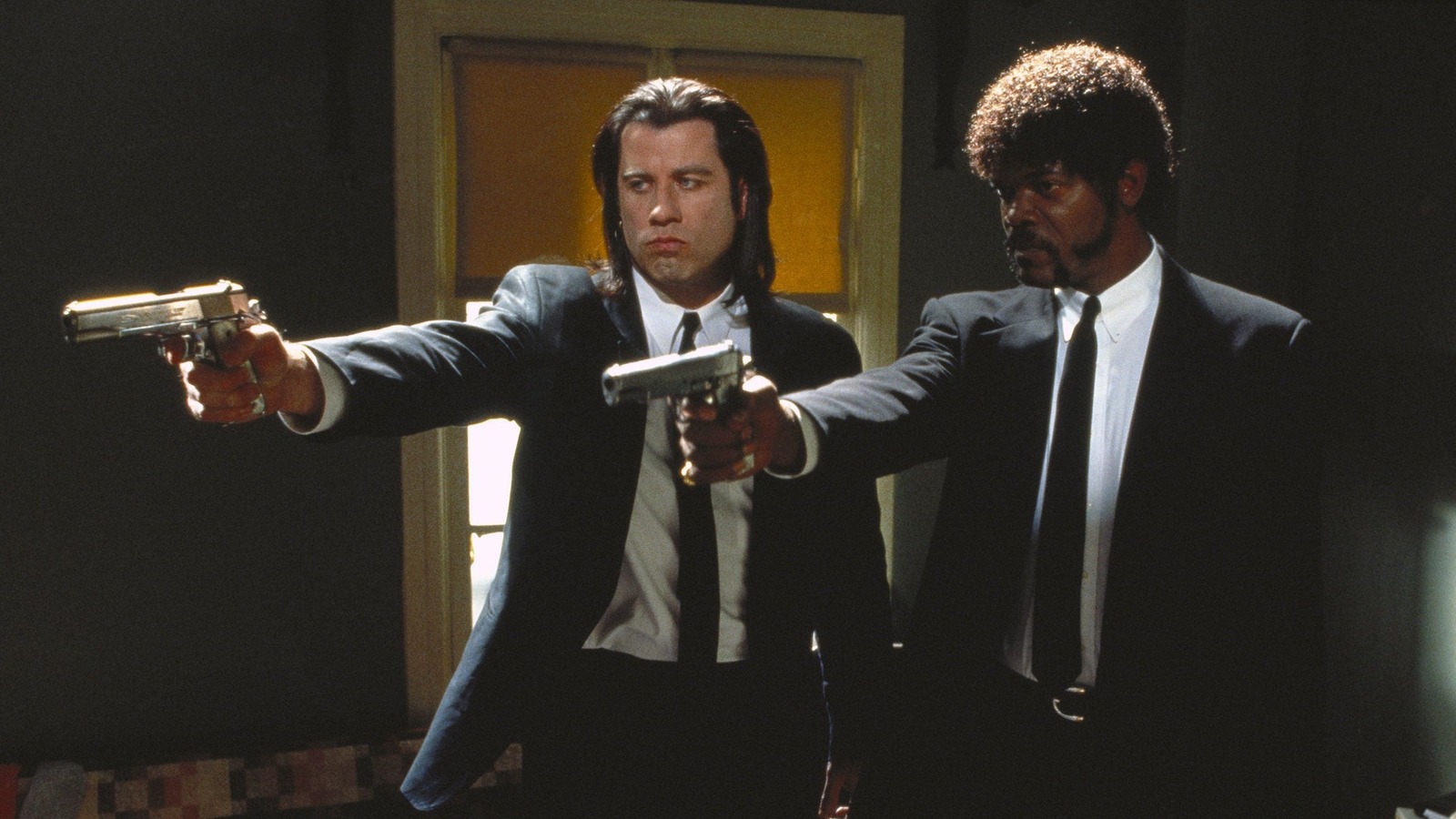Quentin Tarantino’s Pulp Fiction is regarded as a cultural landmark. Its unique storytelling and memorable characters have made it a topic of discussion for decades. The film’s non-linear narrative structure, iconic scenes, and unpredictable twists have solidified its place in cinematic history. Despite its initial release in 1994, Pulp Fiction’s influence continues to resonate today, with fans and critics alike still debating its meaning and symbolism.
One of Pulp Fiction’s most distinctive features is its non-chronological narrative. The movie weaves together multiple interconnected stories that unfold in a jumbled timeline. This storytelling technique creates a challenge for viewers trying to piece the events together. While this disjointed structure may confuse some audiences, it encourages active engagement, making the film more immersive. The shifting narrative perspective adds to the complexity of the film, making it a subject of ongoing analysis.
The final scene of Pulp Fiction, set in the diner, has sparked much debate. Unlike traditional films, the final scene occurs in the middle of the story’s timeline. This unexpected placement challenges conventional cinematic structure and creates a circular feeling to the narrative. The diner’s confrontation with the robbers is both a climax and a thematic resolution. It serves as the point where key themes of redemption, forgiveness, and fate converge.

Jules’ Transformation and His Search for Redemption in the Film
A central element of Pulp Fiction is the transformation of Jules Winnfield. Throughout the film, Jules quotes a passage from the Bible, Ezekiel 25:17. Initially, this quote serves as a weapon, designed to intimidate his victims. However, as the story progresses, Jules begins to reflect on the true meaning of the verse. By the film’s end, he decides to retire from his life of crime, signaling his personal journey toward redemption. This arc is central to understanding the film’s moral themes.
Another iconic and mysterious aspect of Pulp Fiction is the briefcase that Vincent and Jules are tasked with retrieving. For years, audiences have speculated about the contents of the briefcase. Popular theories range from the soul of Marsellus Wallace to gold bars and diamonds. However, Tarantino has confirmed that the contents are irrelevant to the story. The briefcase serves as a MacGuffin, a plot device meant to drive the action without adding deeper significance.
The sudden death of Vincent Vega in Pulp Fiction is one of its most shocking moments. After Vincent spends much of the film engaged in criminal activities, his fate is sealed in an unexpected twist. He is killed by Butch, a character who acts out of self-preservation after betraying Marsellus Wallace. Vincent’s death underscores the unpredictable and chaotic nature of the criminal world in which the characters reside. His demise is both ironic and tragic, reflecting the randomness of violence in their lives.
The Bible verse Ezekiel 25:17, recited by Jules, carries significant weight in Pulp Fiction. Initially, the verse is used by Jules to assert dominance and instill fear. However, as the film unfolds, Jules begins to question its deeper meaning. The verse symbolizes his internal transformation, from a ruthless hitman to someone seeking redemption. The decision to spare the robbers at the diner marks a pivotal moment in his journey toward spiritual awakening and personal growth.

Jules’ Ambiguous Fate After the Events of Pulp Fiction
While the death of Vincent is definitive, the fate of Jules is left ambiguous. The film ends without providing a clear answer as to what happens to him. This open-endedness is intentional, emphasizing the importance of his personal transformation rather than his future actions. Throughout the film, Jules grapples with the idea of divine intervention and redemption, leading many to speculate that he will wander the Earth to seek peace. However, Tarantino deliberately avoids confirming his fate, highlighting the film’s focus on moral choices.
At its core, Pulp Fiction explores themes of morality and redemption. Both Jules and Butch make decisions that reflect their moral growth. Jules chooses to spare the robbers in the diner, while Butch decides to save Marsellus Wallace after initially betraying him. These choices illustrate the possibility of redemption, even for those who have committed grave wrongs. Pulp Fiction emphasizes that people are capable of change, and the choices they make can lead to a better future.
Though Pulp Fiction is widely regarded as Tarantino’s greatest achievement, the director himself has expressed mixed feelings about the film. In hindsight, he has critiqued certain aspects of its production, including his directorial approach. He admits that while the film’s bold narrative and unconventional style garnered attention, he feels that his focus on cinematic technique improved in later works like Jackie Brown. Despite his reservations, Pulp Fiction remains an iconic film that propelled Tarantino into the spotlight and solidified his status as a groundbreaking filmmaker.
While the non-linear narrative is central to Pulp Fiction’s identity, the story can also be viewed in chronological order. When placed in sequence, the events of the film still hold together, revealing a different perspective on its characters and themes. The reordered timeline helps to highlight the key turning points in the story, such as Jules’s transformation and Butch’s redemption. While the non-linear structure enhances the film’s complexity, watching it chronologically allows for a clearer understanding of the characters’ journeys.



